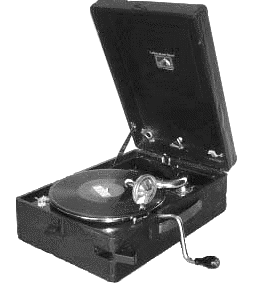- Audio Woo Checklist
- Audiophile Afterlife
- Analog CD
- Bass
- Burn-in
- Car stereo
- Ceramic speakers
- Collapsible speakers
- Coat hangers
- Design
- Digital Cassette
- Engineering 101
- Invisible speakers
- LP + CD
- Digital LP
- DSD
- DVD rewinder
- Horns
- Musical Chair
- My Gear
- Best or bogus
- Pumps and Purse
- Power cord cats
- Psychology
- Radio
- Ripping the analog way
- Rip to analog
- Sound Icon
- Tape
- Toilet
- Universal Record
- Value for money
- Visible Sound
- Vinyl
- Wood glue
- Woofers
Audio Woo Checklist
(attributed to Sean Adams, founder of SlimDevices)
You claim that an
( ) audible
( ) measurable
( ) hypothetical
improvement in sound quality can be attained by:
( ) upsampling
( ) increasing word size
( ) vibration dampening
( ) bi-wiring
( ) replacing the external power supply
( ) using a different lossless format
( ) decompressing on the server
( ) removing bits of metal from skull
( ) using ethernet instead of wireless
( ) inverting phase
( ) installing bigger connectors
( ) installing Black Gate caps
( ) installing ByBee filters
( ) installing hospital-grade AC jacks
( ) defragmenting the hard disk
( ) running older firmware
Your idea will not work. Specifically, it fails to account for:
( ) the placebo effect
( ) your ears honestly aren't that good
( ) your idea has already been thoroughly disproved
( ) modern DACs upsample anyway
( ) those products are pure snake oil
( ) lossless formats, by definition, are lossless
( ) those measurements are bogus
( ) sound travels much slower than you think
( ) electric signals travel much faster than you think
( ) that's not how binary arithmetic works
( ) that's not how TCP/IP works
( ) the Nyquist theorem
( ) the can't polish a turd theorem
( ) bits are bits
Your subsequent arguments will probably appeal in desperation to such esoterica as:
( ) jitter
( ) EMI
( ) thermal noise
( ) existentialism
( ) cosmic rays
And you will then change the subject to:
( ) theories are not the same as facts
( ) measurements don't tell everything
( ) not everyone is subject to the placebo effect
( ) blind testing is dumb
( ) you can't prove what I can't hear
( ) science isn't everything
Rather than engage in this tired discussion, I suggest exploring the following factors which are more likely to improve sound quality in your situation:
( ) room acoustics
( ) source material
( ) type of speakers
( ) speaker placement
( ) crossover points
( ) equalization
( ) Q-tips

